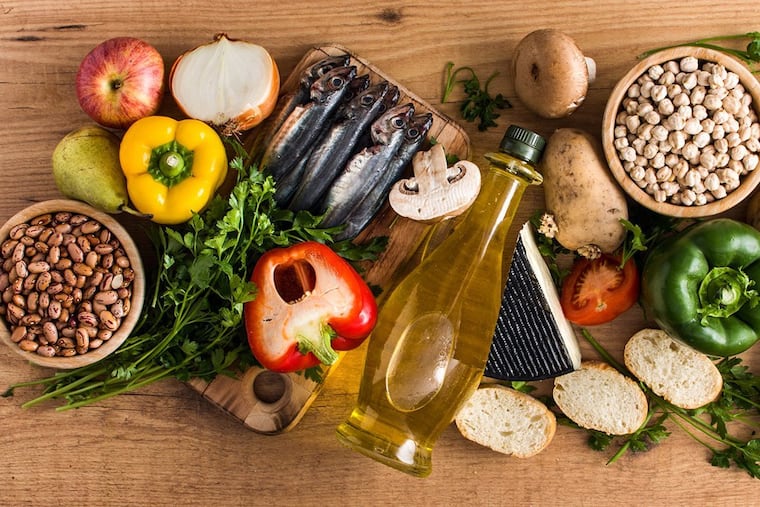A cardiologist on the new Pesco-Mediterranean diet, and what’s best for heart health | Expert Opinion
Picking the right diet can be a challenge. Is your primary goal weight loss or heart health?

Picking the right diet can be a challenge. Is your primary goal weight loss or heart health? The keto diet, low in sugar and carbs, helps with quick weight loss, but is not especially cardiac friendly, and is hard to maintain forever. A diet can be vegetarian, yet full of sugar and other empty carbs.
For years, I have felt that the best cardiac diet is a Mediterranean diet, full of omega-3 fatty acids from fish, rich in olive oil, and with few simple carbohydrates. A recent article published in the Journal of the American College of Cardiology proposes a new diet, called “A Pesco-Mediterranean Diet with Intermittent Fasting,” based on a review of the science behind dieting. It makes a strong case that this diet may be best for many Americans for long-term cardiac health, longevity, and sustainability. Here is my perspective on the new diet, and the best way to follow it:
Fish is the primary source of protein. Higher fish consumption (as long as it is not fried), such as salmon, sardines, and trout, is important, as they have more omega-3 fatty acids, and are low in mercury. Other types of seafood such as scallops, lobster, and clams are good but have lower omega-3 content.
Olive oil is good, but not all kinds. Unlike the common version of olive oil, which is refined, use extra virgin olive oil (EVOO). This is unrefined and may help lower cholesterol, reduce inflammation, and decrease the risk of diabetes.
Tree nuts are important. The PREDIMED study supplemented a Mediterranean diet with mixed walnuts, almonds, and hazelnuts. One daily serving led to a 28% reduction in cardiac risk, but eating too many nuts affects weight loss, and can result in gastrointestinal distress.
Cut out meat as much as possible, especially processed meat.
Legumes such as lentils, beans, and peas are encouraged.
One of the major differences between this diet and the Mediterranean diet is allowing eggs. Despite the fact that egg yolks contain around 200 mg of cholesterol, the authors point out that recent trials suggest that egg consumption does not increase the risk of developing coronary artery disease. They recommend up to five yolks per week and unlimited egg whites.
Dairy products are allowed, as they contribute important nutrients, including protein, minerals, and vitamin D. Recommended dairy includes low-fat yogurt and soft cheeses. Butter and hard cheeses are discouraged, as they are high in saturated fats and salt.
Sugar needs to be limited. Water, either regular or fizzy, is the recommended drink, reflecting the importance of decreasing sugar in beverages.
Complex carbohydrates, from whole grains such as barley, whole oats, brown rice, and quinoa, are an integral part of both this diet and the traditional Mediterranean diet. White bread, pasta, and pizza are not.
The most controversial part of this plan is intermittent fasting. The diet is excellent without adding the fasting, and I suspect the authors suggest it to help differentiate their diet from the classic Mediterranean diet. Time-restricted eating, a form of intermittent fasting that is suggested, means no eating for six to 16 hours per day. The authors cite evidence that overnight fasting enhances heart health. The most popular kind of time-restricted eating is to eat two meals a day rather than three and to do this as a fasting-to-eating ratio of 16:8 hours.
Alcohol is allowed, preferably one glass of red wine a night.
Except for the fasting, this diet makes a lot of sense. It is based on science and is a little easier to follow than the classic Mediterranean diet. If you are a carnivore, it does mean giving up meat. The intermittent fasting may turn out to be helpful, but more research is needed before I would recommend this. My conclusion was reaffirmed by another article published this week, which showed no change in weight loss or other metabolic indicators, such as glucose, when time-restricted eating was directly compared with eating throughout the day. Instead, another approach may be to not eat any food after 8 p.m. and eliminate nighttime snacking. This would allow a relatively painless 10 to 12 hour fast every night, getting the benefit of reduced insulin levels and reduced intake of wasted nighttime calories.
David Becker is a frequent Inquirer contributor and a board-certified cardiologist with Chestnut Hill Temple Cardiology in Flourtown. He has been in practice for more than 25 years.